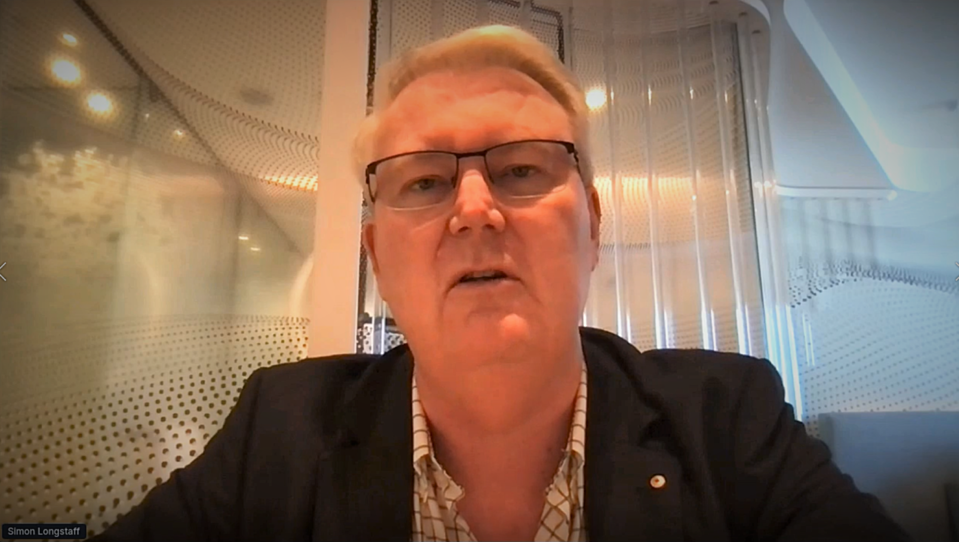Local government adapt quickfire grants in a post-COVID-19 world
Posted on 31 Mar 2021
By Lachlan Pollock, special projects, Our Community
When a crisis hits, grantmakers must react quickly to ensure that money is sent where it is desperately needed, and that it is received in a timely manner. Between the pandemic, bushfires and floods, grantmakers throughout Australia have responded with quick response grants programs to meet that demand.
Local government grantmakers from three states compared their reactions to emerging disasters in a panel discussion during the Local Government Muster at the 2021 Grantmaking Intelligence Conference. Here are their key takeaways.
Keep grant guidelines broad for applicants

COVID-19 prompted the City of Logan grants team to adapt their program to broaden the scope of their grants while speeding up the funding process to ensure the community could deal with unprecedented issues.
The council created a grant that enabled applications at any time.
“We opened up a quick-response grant which was always open for applications,” community development project officer at the City of Logan, Kate Mocsay, told delegates.
“It had a maximum four-week turnaround from submitting an application to receiving notification of funding or notification of being declined.”
The new grant provided up to $5000 for any community organisation for any COVID-related need in the community that would improve “inclusion, participation or cohesion”.
“It was a really broad round,” Ms Mocsay said.
The decision to keep the grant guidelines broad ensured that the council’s grant funding remained relevant to the community, with needs rapidly changing as the pandemic response evolved.
“COVID-19 required us to be reactive and fast-pivoting in our programming,” she said.
“A big learning was to have a willingness to listen, and regroup, and create new approaches to the concerns and issues that our community and our residents have.”
Delegate authority to speed up the approval process

For Michael van Vliet, grants team lead at Yarra City Council, administering COVID-19 grants was very different to standard processes.
To accelerate the council’s response and evaluation process, Mr van Vliet formed an independent assessment panel of community and non-government sector leaders to vet grant applications.
The panel reviewed applications for approval by the council’s CEO, which avoiding applications having to be approved at a council meeting.
“The assessment panel ... were highly credentialed but time poor, so the panel meetings deciding on the grants had to be extremely efficient,” said Mr van Vliet.
The applications followed this swift process:
- Eligibility checks;
- Internal assessment;
- Online assessment by the independent assessment panel;
- Panel meeting to review, discuss and recommend; and,
- CEO provided with panel recommendations and, if satisfied, approval of funding.
“The turnaround from the grant round closing to the announcement of the outcomes would be around three weeks,” Mr van Vliet said.
Quick-fire grants should be a part of your funding portfolio

Quick-response grants should remain a part of the City of Perth’s grant portfolio post-pandemic, the council’s cultural development manager, Tabitha McMullan, told the conference.
Before the pandemic, the City of Perth did not have quick response grants, and their grants processes were “quite onerous,” she said.
“It was a daring move for our council to bring in quick-response grants at all,” she said.
Outlining the proposal for the next financial year’s grant rounds, Ms McMullan showcased new quick- response grants for events and activation, as well as arts and culture.
The City of Perth’s COVID-19 Rebound Grants were largely focused on business support and economic development, with applicants able to apply at any time, she said. Applicants received the result of their application in four to eight weeks.
















Gallery pictures (L-R): SmartyGrants founder Denis Moriarty; Our Community director of innovation Sarah Barker; Innovation Lab data scientist; Nathan Mifsud; Conference facilitators Barry Smith and Fiona Dempster; Australian Small Business and Family Enterprise Ombudsman Craig Latham; Chuck Berger of Kimberley Community Legal Service; “Return to purpose” and “Big issues” panels hosted by Our Community chaos controller Kathy Richardson, State/Federal Muster host and SmartyGrants special projects director Joshua Presser; Teena Blewitt from the Department of Social Services; Chris Wheeler, consultant and former deputy NSW ombudsman; Dr Simon Longstaff from the Ethics Centre; SmartyGrants leaders in the “behind the curtain” session; Jeremy Kelshaw from the City of Sydney; Top conference contributor aka “Top Banana” Emily Costello; Presenters in the “Quick-fire grants” session and Local Government Muster host Jodie Shanks.